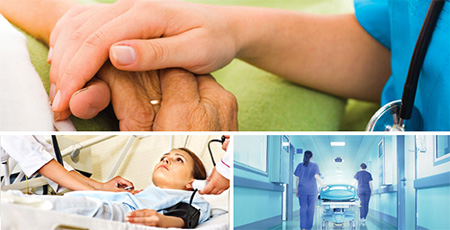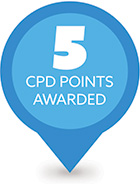A one day masterclass – Book your place now!
Date: 8th October 2015
In this MasterClass, we address the key challenges of control and restraint, how and when to apply, the legal implications and much more. After attending this course, you will leave better informed, more confident and armed with new knowledge and skills to help should the issue or circumstance of control and restraint arise again.
A challenging and (as highlighted recently on National Television) often contentious issue in Irelands care homes and in the social care environment is the issue of control and restraint of patients. Frequently, the appropriate use of control and / or restraint is necessary, be that for the patients safety or that of other patients or family.
However, even with good intentions, inappropriate use, whether through the lack of knowledge or training or simple ignorance, along with the lack of detailed documentation of decisions taken to apply control and restraint in certain cases could lead to accusations of mistreatment aimed at the care professional. The issues surrounding control and restraint can be fraught with legal implications, legislative compliance failures and more and professionals in the care environment need to be aware of the challenges, need advice and guidance on how to comply with regulations and importantly, need to be informed on best practice, particularly where control and restraint may frequently be required or potentially required.
For instance, what is the definition of restraint and when can it be used? What types of restraint are considered appropriate? Under what circumstances must restraint not be used? What are the boundaries when considering control? What is the legal basis for control? What are the legalities regarding recording, monitoring, seclusion? What are the standard requirements in today’s professional care for recording an incident afterwards? What is the definition of violent behaviour and how do you best deal with it? When must restraint be absolutely used? What are the key issues / challenges in the mental health patient environment?
CMG Professional Training have a strong relationship with the Irish healthcare sector and deliver dozens of topical and relevant training courses annually to assist health care professionals and executives gain a better understanding of their requirements, skills and professional development. We are hosting a new training course – ‘The legal use of Control and Restraint’ for care home and social care professionals to address the key challenges of control and restraint, how and when to apply, the legal implications and much more. After attending this course, you will leave better informed, more confidant and armed with new knowledge and skills to help should the issue or circumstance of control and restraint arise again.
- Overview of the issues and challenges facing professionals in controlling and restraining patients
- Legal definitions and boundaries
- Understanding the types of restraints, protective measures or deprivation of liberty
- Understand what constitutes control; physical, chemical and/or psychological
- Circumstances where restraint should be considered – and when not to be used
- The Legal and Ethical frameworks relevant to restraint explained
- Case study including the use of restraint in mental health and emergency settings
- Restraint techniques
- What constitutes inappropriate /abusive use of control / restraint?
- Distinctions between restraint, battery and negligence
- Practical guidance on documenting decisions taken to apply control and/or restraint
- Litigation, investigation and potential civil claims
- Minimising exposure to claims, case law and overview
This course is suitable for those working with older adults, service users with learning disabilities and service users who lack capacity to make their own choices. It is also suitable for liaison staff and employees who work within an environment where there is a requirement for the use of restraint.
On completion you will receive your CMG MasterClass Certificate as well as your CPD Certificate containing 5 Structured CPD Points.
Aisling Mulligan BL
Barrister at Law, Law Library
Aisling Mulligan BL is a Law graduate of UCD BCL(Phil), a graduate of the Honourable Society of Kings Inns and a practicing Barrister.
Aisling practices in the area of Healthcare Law and Childcare Law and is also a member of Arbitration Ireland. She has a particular interest in the provision of services for those who lack capacity this includes healthcare, education and residential services.
Jane McGowan,
Barrister at Law, the Law Library
Jane is a law graduate of Trinity College, Dublin and The Honourable Society of King’s Inns. She is a practising barrister specialising in the areas of criminal law, administrative law, human rights law and mental health law. Jane is a law lecturer at UCD. She is also the External Relations Officer of the Irish Criminal Bar Association and a supervising lawyer of the Irish Innocence Project.
Training Environment:
CMG Professional Training courses take place at our state-of-the-art training facility in the Apex Building situated in the Beacon Quarter of Sandyford Industrial Estate, Dublin 18. The CMG Training Centre is accessible by the Luas, (Sandyford line, Stillorgan stop – 6 mins walk) several bus options (the number 11 travels from O Connell street Dublin and stops directly outside the training centre) and we are situated very close to the M50 at the Beacon Hospital corner. There are several car parks within a three minute walk from the training centre with very competitive ‘all day’ parking rates and we have a range of coffee shops (including Starbucks) as well as shops and restaurants nearby.
Date, Time & Venue:
Date: 8th October, 2015
Times: 9.30 am to 4.00pm
Venue: Apex Building, Blackthorn Road, Sandyford Dublin 18
Course Cost:
This course costs €345.00 per person and includes course documentation and light refreshments. While the course fee does not include lunch, we do provide freshly made sandwiches, nespresso coffee and a range of teas and fresh juice for those who require a light lunch. Alternatively you can avail of the local food stores and coffee shops opposite the training centre for hot food or alternative lunch options.
Telephone:+353 1 2933650




